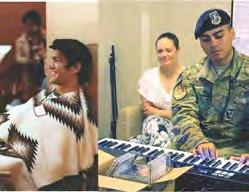

Long COVID and its employment, economic impacts merit scrutiny
Are you a person with disabilities who also lives with Long COVID? Or has Long COVID resulted in disability status for the first time?
Are you concerned about how Long COVID has affected or could affect your employment? Do you wonder about how your employment is governed under the federal Americans with Disabilities Act (ADA)?
Learn about these interrelated issues at a free online seminar offered 10-11 a.m. Thursday, October 9. Pre-registration is required. To attend this training, register at: https://us02web.zoom.us/meeting/register/ n0oqWy0yRISUUADok2GbSQ
After registering, prospective participants will receive a confirmation email containing information about joining the meeting. The deadline for accommodations was in September but if anyone has questions, contact mnsilc1215@gmail.com
The presenter is Cindy Tarshish, director of ADA Minnesota, a program of the Metropolitan Center for Independent Living (MCIL). MCIL is providing the training through a grant from the Minnesota Department of Health. MCIL is also working with the Minnesota Statewide Independent Living Council organization on the event.
This lively and engaging presentation will provide many real-life examples for viewers. Learn how Long COVID is defined, and how the ADA defines disability.
More than 20 million Americans have Long COVID. In 2021, the federal Department of Health and Human Services issued guidance confirming that Long COVID can be a disability under the ADA. That guidance means that individuals with Long COVID may be entitled to protections under the law. This includes reasonable accommodations in the workplace. Part of the presentation will include information on reasonable accommodations that need to be offered to employees living with this disability.
Another key topic to be covered is disclosure of a disability. Key points also include resources and takeaways.
Tarshish will end the training with a question and answer session she loves to call “Stump the presenter.”
When Long COVID was first found to be a disabling condition, questions were raised about employment and accommodations. Long COVID can complicate retaining a job or returning to work. Long COVID can cause a variety of symptoms, including fatigue, cognitive impairment, respiratory problems, and organ damage, which can
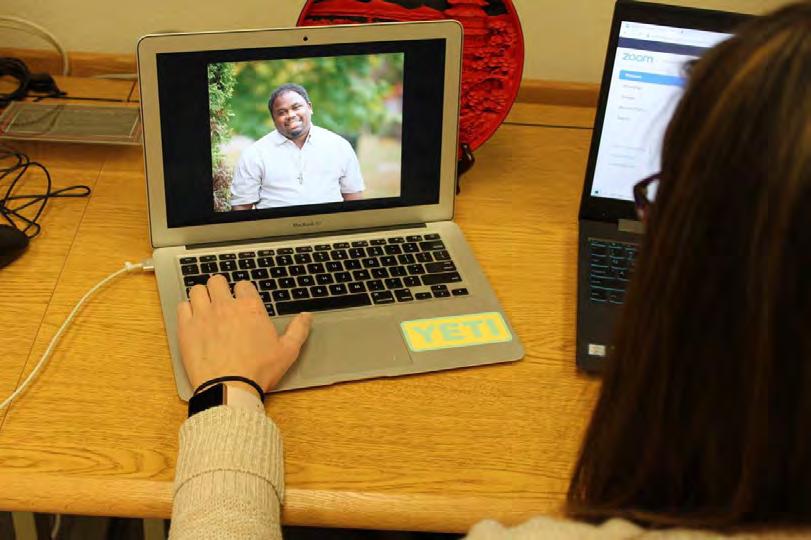
meet this definition.
Research shows that Long COVID significantly impacts employment. Persistent fatigue and cognitive issues can take a huge toll. Some people recover enough that they can resume previous work schedules. Others cannot.
Studies show reduced workforce participation, lower likelihood of working full-time, and increased unemployment rates among affected individuals. A very difficult consequence is job and income loss. That in turn leads to financial stress. Higher rates of unemployment have been tracked for those living with Long COVID as compared to those unaffected by the condition.
Severity of Long COVID symptoms affects how long and how much a person’s work is affected. For some people, this does affect the ability to maintain employment, even on a reduced basis.
Economic impacts eyed
Long COVID is often discussed in the context of costs to the healthcare system. Several studies have also looked at the overall economic impacts. One enlightening article about Long COVID and employment can be found on the Yale Medicine website, at https://www. yalemedicine.org/news/long-covid-keeps-peopleout-of-work-and-hurts-the-economy “Long COVID isn’t just a health issue—it’s
hitting wallets and workplaces hard. Millions of Americans are struggling to return to work months after their initial infection, and the economic toll is staggering as governments and employers scramble to address this growing challenge,” the article stated.
A recent Yale-led study found that up to 14 percent of 3,500 Long COVID patients surveyed in the US had not returned to work three months after getting sick. The research team also found that nearly one in 10 Long COVID patients suffered from five or more symptoms. These participants—which included young, previously healthy individuals—were twice as likely to be unable to return to work within three months compared to those without symptoms.
“It’s a myth to assume this data reflects issues limited to unvaccinated individuals, retiring adults, or people with pre-existing medical conditions,” said Arjun Venkatesh, MD, professor of emergency medicine at Yale School of Medicine and the primary author of the study. “Our cohort tends to be younger and highly vaccinated, yet the reality is that they continue to have prolonged symptoms after an acute COVID infection, which significantly affects their ability to work.”
Venkatesh is conducting longer-term analyses to see if these patients eventually return to work even one or two years after infection.
Efforts underway in Minnesota to safeguard vaccine access
In response to federal actions restricting vaccine availability at the federal level, Gov. Tim Walz issued an executive order directing the Minnesota Department of Health (MDH) to expand its efforts to safeguard vaccine access in Minnesota The executive order also directs the state epidemiologist to issue a standing order for the COVID-19 vaccine, which would provide greater flexibility for health care providers and pharmacists to provide the vaccine.
MDH has responded to that order and announced its plans for vaccine access.
“Vaccines are one of the greatest public health achievements in modern medicine,” said Walz. “While the Trump Administration attempts to limit Americans’ access to preventative care, Minnesota will be guided by science and medical expertise, prioritizing the health and safety of our people.”
“Minnesota is in a stronger position than most states to handle the loss of federal vaccine support, thanks to years of work by MDH and our partners,” said Minnesota Health Commissioner Dr. Brooke Cunningham. “Still, the scale of these cuts will likely lead to changes that affect Minnesotans. We don’t yet know what those changes will be, but MDH will keep a close eye on the situation, work to protect vaccine access, and stay closely connected with our public health partners.”
Recently U.S. Secretary of Health and Human Services Robert F. Kennedy Jr. announced plans to change recommendations to limit vaccine access.
Walz’s order directs state agencies to work collaboratively across the state enterprise, with independent boards, and with insurers, health care providers, and patients to support access to, and accurate information about, all available vaccines. Unlike many other states, pharmacists in Minnesota can administer influenza and COVID-19 vaccines according to the FDA license to patients three and up without a separate prescription. This process does not rely on the Advisory Committee on Immunization Practices recommendations. COVID-19 vaccines are becoming available for people at clinics and pharmacies and there should be increasing availability over the next several weeks.
MDH has announced it is endorsing existing COVID-19 vaccine recommendations from professional medical associations for the 202526 vaccine. MDH is encouraging the public and providers to look to the recommendations for the best science-based guidance on immunizations at this time.
Focusing on recommendations from these professional medical associations is a departure from prior years when the agency primarily relied on promoting federal vaccine
recommendations. MDH is making this change to provide recommendations for Minnesotans seeking science-based decisionmaking guidance.
“We’re following the science, and the science is clear. COVID-19 vaccines prevent severe illness and death for people of all ages, and we want to ensure access to vaccination,” said Cunningham. “This is a unique moment where vaccine information from federal health leaders leaves important information gaps for Minnesotans. These independent medical associations have all looked at the science and concluded that COVID-19 vaccine is safe, effective and important for people across the lifespan.”
MDH endorses updated COVID-19 vaccine recommendations from the American Academy of Pediatrics (AAP), American Academy of Family Physicians (AAFP) and American College of Obstetricians and Gynecologists (ACOG). The associations developed guidance recommending that all people over 6 months old should have the option to receive the COVID-19 vaccine without additional barriers. There is a strong recommendation for children under 2 years, pregnant women, children and adults with high-risk conditions, and adults age 65 and older to get vaccinated. More detailed information about the recommendations can
Long COVID’s significant impact on the economy are outlined in various studies. Research published in Nature Medicine estimates that more 400 million people worldwide have developed Long COVID at some point. That has resulted in an annual global economic cost of $1 trillion.
The Organization for Economic Cooperation and Development (OECD) provided a similar estimate of $864 million to $1.04 trillion, even when excluding the direct costs of medical care.
In 2022, research from Harvard estimated the total cost of Long COVID at a staggering $3.7 trillion, using three key parameters: lost quality of life ($2.2 trillion), lost earnings ($1 trillion), and additional medical expenses ($528 billion). Lost quality of life represents the largest share of this estimate as individuals struggle to work, support their families, and participate in consumption and spending.
Another interesting article is at https://pmc. ncbi.nlm.nih.gov/articles/PMC11968618/
Published by the National Library of Medicine, the article is titled The Impact of Long COVID on Employment and Well-Being: A Qualitative Study of Patient Perspectives.
The studies involved explored the experience of Long COVID patients who face challenges with employment, and how those challenges may inform improvements in how healthcare systems can provide holistic care for people.
A sample of people in the studies found that approximately one-quarter reported significant activity limitations, and nearly two-thirds reported a disability. It was also found that individuals with Long COVID have been shown to have a lower likelihood of full-time employment and a higher likelihood of unemployment compared to individuals without Long COVID.
Twenty-two percent of individuals with Long COVID have reported they were unable to work 6 months after initial infection, 45 percent required a reduced work schedule, and 18 percent were unable to return to work a year after COVID-19 infection. Due to this reduced capacity to work, it is estimated that Long COVID resulted in a minimum of $170 billion in lost wages in the USA in 2022.
Access Press provides coverage of COVID issues with support from the Metropolitan Center for Independent Living (MCIL). Learn more about MCIL at https://mcil-mn.org/
This activity is made possible by a grant from the Long COVID Program of the Minnesota Department of Health.
be found on COVID-19 Vaccine Access for Minnesotans.
“Vaccines are one of the greatest public health achievements in modern medicine and help protect people of all ages,” said MDH Medical Director and State Epidemiologist Dr. Ruth Lynfield. “We encourage people to talk to their health care provider about all of the vaccines that are recommended for them, especially flu, RSV and COVID-19 vaccines, right now as we enter the respiratory disease season.”



Walz calls for intensified efforts to combat fraud in state programs
Gov. Tim Walz issued an executive order September 17 directing state agencies to intensify efforts to prevent, detect, and combat fraud in state programs.
“If you commit fraud in Minnesota, you will be prosecuted and held accountable to the fullest extent of the law,” he said. “While we will continue to urge the legislature to take further action, this executive order gives our agencies additional tools to safeguard taxpayer dollars.”
These include disenrolling inactive Medicaid providers and requiring prepayment review for high-risk providers, establishing a Statewide Inspector General Coordinating Council, and conducting an external review of Department of Human Services operations to recommend structural changes that prioritize fraud prevention, accountability, and efficient service delivery.
The announcement came before department officials appeared before the Republican-led
WIRE FRAUD
From page 1
“Let today’s actions serve as a warning to anyone who steals from Minnesota taxpayers: You will be prosecuted to the fullest extent possible by our law enforcement partners,” said Shireen Gandhi, temporary DHS commissioner, in a statement.
One of the largest Housing Stabilization Services providers was Brilliant Minds Services LLC, with which four of the defendants — Aden, Ali, Dayib and Mohamed — were affiliated. It was housed at the Griggs-
VOTE
From page 1
“Absentee voting is particularly helpful for people with disabilities,” said Wilson. Voters can register before the election or can register at the polls. Registration requires proof of identity and residency –who the voter is and where they live. Specific documents are needed to register at the polls. Or a prospective voter can bring a person from their precinct to vouch for them. Specific measures are in place for residential facilities residents to have their staff help them vote.
One major issue for people with disabilities centers on people under guardianship. This was a focus during the special September week when disability voting rights are in the spotlight. Wilson emphasized that voting under guardianship often raises questions. Cases have been reported around the country in which a guardian has tried to deny a person’s right to vote or has tried to improperly influence that vote. People under guardianship have the right to vote without undue influence.
SESSION
From page 1
leads on a bill. On others, it may provide support to another organization or advocate who leads on the bill. Support can range from active lobbying to sending a letter of support. Another need discussed in recent weeks is tracking bills that may be similar. Discussions have also been held about the need for various task forces to keep each other abreast about bills.
At MNCCD meetings, Danielle Indovino Cawley and KiloMarie Grande have been among those working to get the word out about the policy submission changes and the upcoming deadlines. One new feature this year is a streamlined policy proposal form used to
House Fraud Prevention and State Agency Oversight Policy Committee regarding problems within Housing Stabilization Services and Integrated Community Supports. Recent television reports show the department failing to ignore signs of potential fraud and allowing millions upon millions of state taxpayer dollars to go to fraudsters instead of those the system is designed to help. Launched in 2020, Housing Stabilization Services helps seniors and people with disabilities find and keep housing. Because of “significant program integrity concerns,” payment to 115 providers were stopped this summer and the program is scheduled to be shut down Oct. 20.
Rep. Dave Pinto (DFL-St. Paul) said part of the issue is with the “flawed design” in creating the program proposed by the Dayton administration and passed when Republicans controlled the House and Senate.
Midway building in St. Paul, which also has more than 20 businesses connected to the Housing Stabilization Services program.
According to court documents, from 2020 to 2024, Brilliant Minds Services claimed to serve 350 people and billed the program $2.3 million. But the company only provided a fraction of their claimed services, prosecutors allege.
From April 2023 to May 2025, each of the four defendants affiliated with Brilliant Minds Services personally pocketed between $300,000 to $400,000, according to court documents.
DHS in its statement said it stopped
“It was simply too easy for providers to enroll in the Housing Stabilization Services program. The vetting in statute was you fill out some forms, pass a background check and essentially you can become a Housing Stabilization Services provider,” said James Clark, the department’s inspector general since March.
Compared to other Medicaid programs, he said provider eligibility in the program does not statutorily require “a lengthy list” of specific qualifications or requirements, such as mandatory training and education, being bonded or professional licensure.
“This is yet another example of DHS and the Walz Administration dodging accountability for their failures. I would have expected Assistant Commissioner Grumdahl to attend the hearing and answer questions today, but DHS never intended for him to come. While I’m glad to see they are finally starting to hold individuals running these programs
payments to Brilliant Minds in May, the same month KARE 11 first reported about the suspected fraud.
Thompson said he will bring more charges in the coming weeks and months, but he said the state must do more at the front end to stop fraud.
“The state and its politicians are starting to take notice about the problem. It’s time for everyone to speak up and stand up to confront the problem before it’s too late,” Thompson said.
accountable for fraud, doing it the day before the public hearing just shows how DHS tries to hide what is going on from legislators and the public,” Rep. Kristin Robbins (R-Maple Grove), the committee chair, said in a statement. Due to employment law, Temporary Human Services Commissioner Shireen Gandhi could not provide additional information on the change.
No matter who is employed there, what has the department been doing to go after folks fraudulently taking money from the state? Republicans questioned why things like visiting addresses with multiple providers or other checks have not occurred.
Clark said the Human Services Department has become “more aggressive” in going after fraud, including, since May 2025, proactively suspended payments at signs of fraud and notifying law enforcement. (Source: Session Daily)
Just hours before a Minnesota House panel examining fraud in public programs was to meet September 17, Gov. Tim Walz put out a fresh plan.

Another issue reviewed is that of accommodations. Both the
and Secretary of State’s office get
better track policies.
Another focus, led by Jonathan Murray, centers on dynamic fiscal notes. This would facilitate long-term cost-benefit analysis of disability policies.
Focuses thus far have include bringing back some unfinished efforts from 2025, including work to improve rideshare options for people with disabilities, especially those who use scooters and wheelchairs. Other 2026 work focuses on Waiver Reimagine budgets, case management reform and child counts for all categorical disabilities.
As Access Press went to press, MNCCD was waiting for Long Term Care Commission (LTCC) appointments. Those were expected by the end of September. One issue tied into this discussion is the concern about automatic
higher funding for congregate living settings versus community-based support options.
Gun reform has also been on the minds of MNCCD members. Gov Tim Walz has called for a special session on gun reform this fall. One issue is how MNCCD should respond in a disability-focused content.
While MNCCD and other disability coalitions focus more on policy and related spending, 2026 is a bonding bill year.
The two-year state budget won approval this past spring. While a smaller-scale bonding bill also won approval, even-numbered years at the capitol focus more on bonding.
A bonding bill was not passed in 2024 as it just missed the adjournment deadline.
Typical bonding brick and mortar requests come from state hospitals, state academies
The Walz administration moved to shutter the housing program last month, following FBI search warrant raids in July.
And, the assistant commissioner of the Department of Human Services who oversaw the housing program was apparently fired before he could testify to the House committee September 17.
This story is republished under Minnesota Reformer’s Creative Commons License.
Read more fraud coverage at https:// minnesotareformer.com/
numerous reports each election of inaccessible voting places. Polling places must provide physical access, with no physical barriers for users. Door widths, adequate parking and elevators if needed should be readily available. Voters should be able to easily drive up to a polling place and vote from their motor vehicle. Polling places must have ballots machines that automatically mark a ballot. Machines can provide a wide range of ways to vote, with headphones, the ability to enlarge a ballot, high-contrast screens, Braille, a touch screen and/or puff and sip technology. Magnifying glasses and signature guides should also be provided. Disabled voters may bring a helper to the polls or may request help from an election judge. Learn more about voting at: https://mylegalaid.org/disability-law-center/ programs/protection-advocacy-for-voter-access/ https://www.sos.mn.gov/elections-voting/ https://www.sos.mn.gov/elections-voting/electionday-voting/polling-place-accessibility/ Editor’s note: Access Press Board Member Catherine Hunter’s commentary about her son and his voting rights appears elsewhere in this issue.
for disabled students, and state departments’ access improvements for colleges and universities, parks and trails, public buildings and other infrastructure. Bonding bills require what is called a “super-majority” of at least 60 percent to pass in both the House and Senate. State agencies have until October 17 to submit their requests. Local governments’ requests were due in June and published in July. Walz is to present his recommendations for the 2026 capital budget to state lawmakers in January.






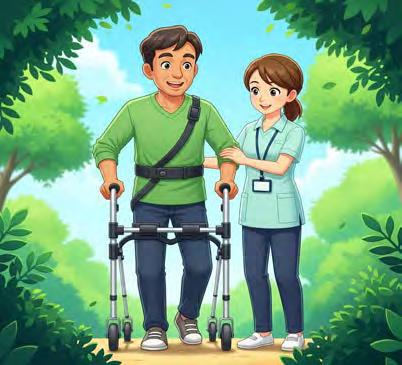

The only time the right to vote can be taken away is when a judge specifically revokes that right.
Disability Law Center



Janice
ADVOCACY
Advocating Change Together
Guthrie Bayard - People with Disabilities
Cow Tipping
Mayor's Advisory Council for People with Disabilities
MCIL
Mid-Minnesota Legal Aid - MN Disability Law Center
V-651-641-0297 act@selfadvocacy.org
V-612-554-3666 guthrie.bayard@minneapolismn.gov
www.selfadvocacy.org
www.minneapolismn.gov/ncr
V-507-201-9678 bboyce@cowtippingpress.org https://cowtippingpress.org
V-651-266-8902 michele.severson@ci.stpaul.mn.us
https://bit.ly/stpadvisory
V-651-646-8342 info@mcil-mn.org www.mcil-mn.org
V-612-334-5970 mndlc@mylegalaid.org mylegalaid.org/our-work/disability MN Consortium for Citizens with Disabilities
V-612-455-1232 info@mnccd.org www.mnccd.org
MN Governor's Council on Developmental Disabilities V - 651-296-4018 admin.dd@state.mn.us mn.gov/mnddc
SMILES Center for Independent Living V -507-345-7139 bdanberry@smilescil.org
ASSISTED LIVING
Opportunity Partners
V-952-938-5511 info@opportunities.org
INJURY
https://smilescil.org
www.opportunities.org
www.accord.org

COMMUNITY LIVING
V-952-938-5511 info@opportunities.org www.opportunities.org Reach
EDUCATION
Advocating Change Together
Avivo
EMPLOYMENT/VOCATION
Avivo
Opportunity Partners
PAI
ProAct
Reach for Resources
Rise
WACOSA
V-651-641-0297 act@selfadvocacy.org www.selfadvocacy.org
V -612-752-8000 contact@avivomn.org www.avivomn.org
V -612-752-8000 contact@avivomn.org www.avivomn.org
V-952-938-5511 info@opportunities.org www.opportunities.org
V-651-846-9274 mminer@paimn.org www.paimn.org
V-651-686-0405 aballard@proactinc.org www.proactinc.org
V-952-200-3030 info@reachforresources.org www.reachforresources.org
V-763-786-8334 info@rise.org https://rise.org
V-320-251-0087 info@wacosa.org www.wacosa.org The Work Incentives Connection at GoodwillEaster Seals Minnesota V-800-976-6728 workincentivesconnection@ gesmn.org www.goodwilleasterseals.org
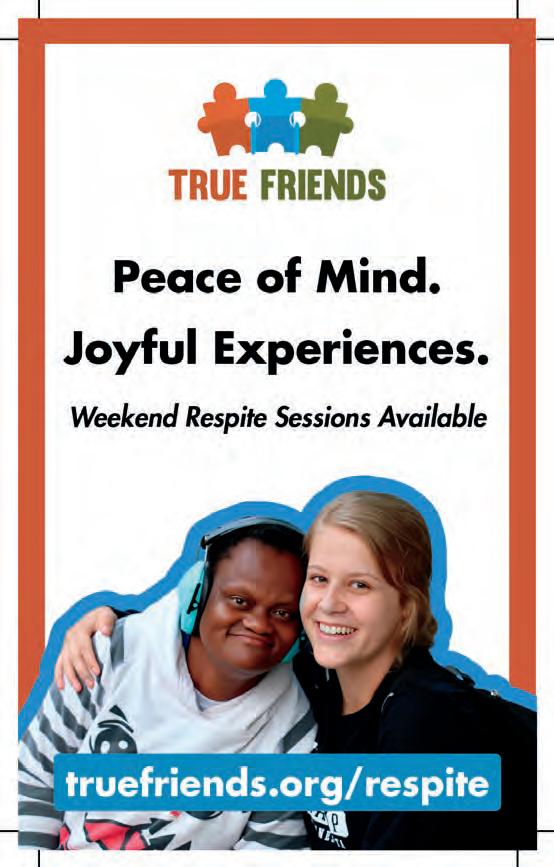



MEDICAL SUPPLIES/EQUIPMENT
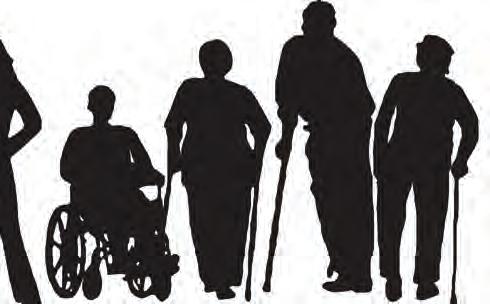


REGIONAL NEWS
UCare announces that it will drop Medicare Advantage health plans in 2026
UCare, one of the largest providers of privatized Medicare in Minnesota, is trimming its workforce and won’t offer Medicare Advantage health plans used by thousands of Minnesota seniors in 2026. Financial challenges drive the change.
The Minneapolis-based health insurer has 158,000 Medicare Advantage (MA) members who will have to find a new provider next year if they want to stay in the privatized version of Medicare. UCare controls a 26 percent share of Minnesota’s Medicare Advantage market.
Due to the coverage change, UCare will lay off about 144 workers or 9 percent of its workforce. The change requires approval from the federal Centers for Medicare & Medicaid Services.
UCare’s decision transforms the state’s private Medicare market at a time when insurers face financial challenges from increases in health care use and payment rates that insurers say are insufficient.
“This decision was not made lightly,” UCare CEO Hilary Marden-Resnik said in a statement. “UCare remains deeply committed to the health of Minnesotans and to supporting members through upcoming transitions.”
In 2025, UCare had the second-highest enrollment in the state for MA plans, which
Disability discrimination alleged
A Minneapolis man who said a brain injury and chronic arthritis have left him unable to drive has sued Metropolitan Council for discrimination against people with disabilities.
Michael Fiorito lives near the Blue Line Lake Street/Midtown Station. He has relied on taking the light-rail train to get to doctor’s appointments and job interviews. Fiorito said that access to the station is often blocked for people unable to climb its long flights of stairs.
Frequent breakdowns of the station’s two elevators and its turned-off escalators leave people who use wheelchairs, canes and walkers without access to the train, he said in the lawsuit filed recently in U.S. District Court.
“I’ve got signed affidavits from people who’ve had a stroke, from people who need a wheelchair, from security guards who’ve seen the elevators down for weeks,” Fiorito said in an interview with the Minnesota Star Tribune. “I have pictures.”
Asked to comment on the lawsuit, officials with the Met Council, the regional planning body that operates the Blue Line, said that they cannot discuss ongoing litigation. But in court filings in response to Fiorito’s accusations, they characterize his claims as “unsupported allegations and scant argument.”
There is no record of the several elevator outages he claims occurred last year and earlier this year, they said.
While acknowledging continuing issues at the station following the onset of the COVID-19 pandemic and the murder of George Floyd in May 2020, officials wrote: “Metro Transit saw an increase in drug use, crime, vandalism, and other forms of abuse — much of which has been at the hands of individuals who are not Metro Transit riders—which has resulted in damage to the facility and at times has affected riders’ experience.”
Nevertheless, officials wrote, Metro Transit developed and began implementing plans to improve security and accessibility and has “completed a long list of capital improvements to the station, including maintenance on the escalators and elevators, with more improvements planned in the future.”
The Lake Street/Midtown light rail station is one of the Blue Line’s busiest stops — and one of its most troubled. Capital improvements will start in the near future.
(Source: Minnesota Star Tribune)
Funding lost for housing
A federal housing program for people exiting homelessness awarded $5.2 million to a nonprofit Twin Cities housing developer for two projects, but the money never came through.
Instead, the U.S. Department of Housing and Urban Development rewrote the program guidelines, re-issued the funding application, and gave applicants just one week to re-apply. Advocates sued, arguing
are Medicare-approved plans sold by private companies that may offer some extra benefits compared with traditional governmentoperated Medicare. Only Blue Cross and Blue Shield of Minnesota, with nearly 200,000 enrollees, has a larger Medicare Advantage business in Minnesota.
UCare serves patients with publicly funded or subsidized health insurance. The insurer will continue offering supplemental plans for traditional Medicare, as well as privatized Medicaid, MinnesotaCare, special needs plans, and individual and family plans on MNsure. For decades, health insurers competed to grow their business in MA, which has become as popular as traditional Medicare administered by the federal government.
That has changed. Earlier this year, UCare stopped offering commissions for brokers who signed up new MA members. The insurer reported an operating loss in 2023, which ballooned to more than $500 million in 2024.
Other insurers face the same dilemma as MA patients have received far more medical care than projected. UnitedHealthcare announced in July it will drop MA plans covering more than 600,000 people amid its own financial turmoil. In April, nonprofit HealthPartners said it was freezing enrollment
that the new guidelines disqualify all projects in jurisdictions with policies — on immigration, homelessness, harm reduction and transgender acceptance — that do not align with Trump administration policy.
A federal judge issued an order temporarily blocking HUD from enforcing the new policies.
But Beacon Interfaith Housing Collaborative, a nonprofit developer of permanent supportive housing, said it never received the $5.2 million it was promised. The situation underscores the whiplash being felt by many organizations, from food banks to child care providers, that have had crucial federal funding withheld since the inauguration of President Donald Trump. The money was awarded to two projects that have yet to break ground: Gladstone Crossing in Maplewood, which will create 40 units of supportive housing for families experiencing homelessness; and Aster Commons in Richfield, which will have 38 apartments for young adults who have experienced homelessness, especially those with autism, mental illness or other conditions.
Supportive housing developments offer deeply affordable — sometimes free — rental housing to people transitioning out of homelessness. They include on-site services, like case management, mental health treatment and job training. Supportive housing is the “invisible backbone of our community solutions on homelessness,” said Chris LaTondresse, president and CEO of Beacon Interfaith Housing Collaborative.
The Biden administration invested billions into anti-homelessness initiatives — including $175 million in supportive housing development, via HUD’s Continuum of Care program — as pandemic protections for renters expired and homelessness increased.
The Biden-led HUD also encouraged the “housing first” approach to homelessness, which does not require sobriety or participation in a substance abuse treatment program as a condition of receiving free or subsidized housing, with the idea that people are more likely to seek treatment — and easier to reach — if they are in stable housing.
In May, HUD opened up applications for Continuum of Care grants totaling $75 million. Ramsey and Hennepin county offices applied for grants to go towards the two Beacon supportive housing developments. In August, HUD started notifying members of Congress about the grant recipients, according to a complaint filed by the National Alliance to End Homelessness.
Beacon learned from Sen. Tina Smith that they had been awarded $5.2 million in grants for the two projects.
But HUD never wrote the checks.
In September, the agency launched a new round of Continuum of Care grant applications, superseding the previous round. It contained a host of new requirements, many of them ideologically aligned with the Trump administration.
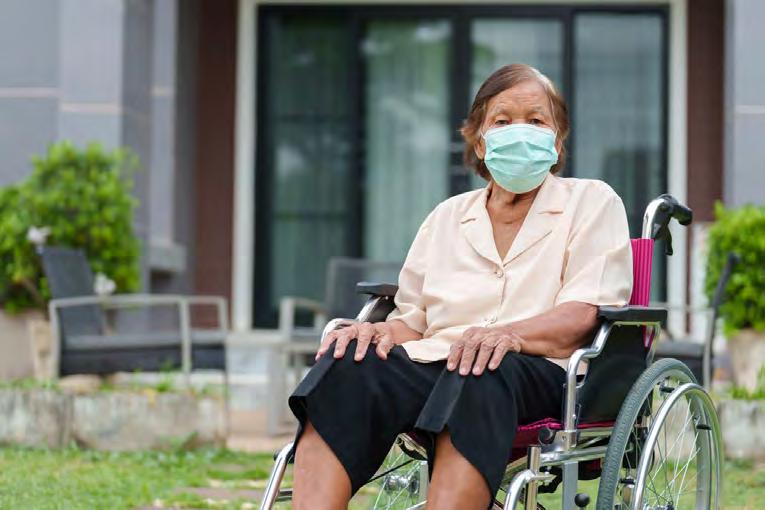
in its Medicaid program and exiting a program for state residents with disabilities after losing nearly $200 million last year.
UCare announced recently that it would stop providing state and federally funded
It also narrowed the focus of the program, requiring projects to be focused on the elderly or people with physical disabilities. Minnesota doesn’t qualify under several of the provisions.
(Source: Minnesota Reformer) Transportation options expand For many Minnesotans, meeting friends for a quick bite at a local eatery or making a last-minute dash for supplies at the local grocery store are relatively quick and easy. Unless you need a wheelchair or mobility scooter to get around. Then, such errands can take hours or even days to arrange.
That could change. After years of offering few on-demand or short-notice transportation choices to people with disabilities, more transit and transportation companies are touting the kinds of quickturn errand options that more able-bodied folks have long enjoyed.
From self-driving vans that pick up and drop off folks in and around Grand Rapids to recent “micro” transit services enabling doorto-door trips in the Twin Cities’ southern suburbs, disabled residents may be getting more ride flexibility. State and federal grants have also allowed Greater Minnesota areas to see gains in service.
“It’s about time,” said Joan Willshire, who has fought for years to expand transportation options for folks with limited mobility. “We’ve been begging for this for years.”
And more is needed, said Willshire, who uses a mobility scooter and in 2023 had to drive it 10 blocks home after a snowstorm because no cab or Uber could take her.
“The message is getting out there, but it needs to go statewide,” she said.
For years, Metro Mobility has been the primary public transportation service for people with a disability or health issue who are unable to use fixed-route buses and trains. And the program has more than 19,300 active riders each month, according to the Met Council, which administers the program.
But riders have long expressed
dissatisfaction, from long waits for buses and rides that don’t show up to untimely drop-offs and missed medical appointments. Users must book rides one to four days before their trip. Yet, if a bus arrives 29 minutes late for a pickup, it’s still considered on time. All of which make using Metro Mobility for spontaneous travel nearly impossible, disabled advocates say. New and recent transit offerings are out there — including through Metro Mobility. Called Metro micro, the service offers ondemand service in four zones, said Gerri Sutton, director of Contracted Services for Metro Transit.
“The goal of those services is to connect with higher frequency fixed routes,” she said. “I think that it is an evolution of transit services. It helps fill those holes.”
Riders book a ride from wherever they are in a service area and get dropped off anywhere in the same service area. The shared ride service areas are north Minneapolis, Roseville, Woodbury and Bloomington. Service in Blaine starts later this month.
In the suburbs, the Minnesota Valley Transit Authority has MVTA Connect. SouthWest Transit offers an app-based, ondemand service called SW Prime.
Erik Hansen, CEO of SouthWest Transit, said the service makes it easier for people with disabilities to take short, spontaneous trips in their area. The average wait time for a Prime ride is about 25 minutes, Hansen said.
Steve Pint, president and CEO of Transportation Plus, said that for nonMetro Mobility customers, his company is the only one providing metrowide ondemand transportation to people who need wheelchairs. They also have a contract to provide on-demand rides to Metro Mobility.
(Source: Minnesota Star Tribune)
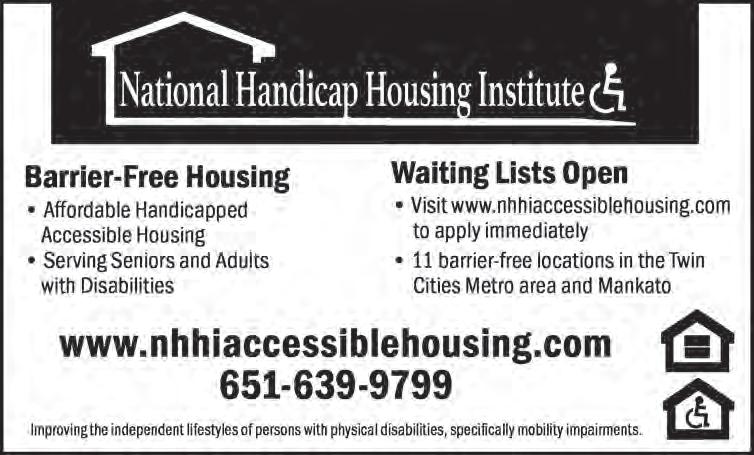
Medicaid coverage in 11 counties, including Ramsey County. The move came as the insurer looked to make up for losses in the Medicaid and Medicare Advantage programs. (Source: Star Tribune)

PEOPLE AND PLACES
ARRM celebrates direct care staff; levels of dedicated service
ARRM celebrated Direct Support Professionals Week in September by honoring eight outstanding direct support professionals or DSPs.
As Minnesota’s largest trade association for organizations providing home and community-based services, ARRM established the ARRM Cares Award to recognize DSPs who go above and beyond in their roles at member organizations.
This year’s ARRM Cares winners are:
• Zockinna Bell, Phoenix Residence, Inc., St. Paul
• Marielle Clark, CCRI, Inc., Moorhead
• Allison Eider, Dungarvin Minnesota, LLC, Mendota Heights
• Julie Hanson, CCRI, Inc., Moorhead
• Kim Sirek, Mount Olivet Rolling Acres, Victoria
• Alana Storch, Lutheran Home: Hope Residence, Belle Plaine
In addition, two DSPs with fewer than three years of experience received the Rising Star Award, a special category of ARRM Cares that highlights new DSPs. The recipients of the Rising Star Award are Alejandro Castro of Living Well Disability Services in Mendota Heights and Jeannie Hicks of TLC of Duluth.

“DSPs are the industry’s front line. When we talk about supporting people with disabilities to live full and meaningful lives, it’s DSPs who show up and make that possible every single day,” said Sue Schettle, CEO of ARRM. “None of us could do our jobs without DSPs.”
MOHR announced metro, Greater Minnesota 2025 DSP Award winners
Direct support professionals who do exemplary work and make a positive difference in the lives of clients were honored in September by the Minnesota Organization for Habilitation and Rehabilitation (MOHR).
MOHR’s 2025 Direct Support Professionals (DSP) Awards recognize direct support professionals’ lifetime achievements, extraordinary skills and depth of character. Years of dedication, unwavering commitment and service by the awardees reaches far beyond their daily responsibilities: shaping colleagues, strengthening organizations, and uplifting the communities they serve. Five awards were given in the categories of Employment - Metro, Enrichment - Greater Minnesota and Enrichment - Metro.
Employment advisor Derek Orege, TSE, Inc., Roseville, DSP Award for Employment – Metro. Orege has dedicated 20 years to TSE, Inc’s clients after starting as a substitute from a staffing agency. Known for his excellent relationship skills and conflict management, Orege is the first person his clients come to when they need help. From late night calls to giving rides when transportation falls through to difficult housing decisions, he takes on every challenge with confidence.
“Doesn’t matter how big the conflict is, Derek has a calm and cool demeanor,” said Jim Freeman, TSE, Inc. chief business development officer. “The people he supports look up to him. If they have done something wrong, he lets them know and helps them know how to go about it in the right way.”
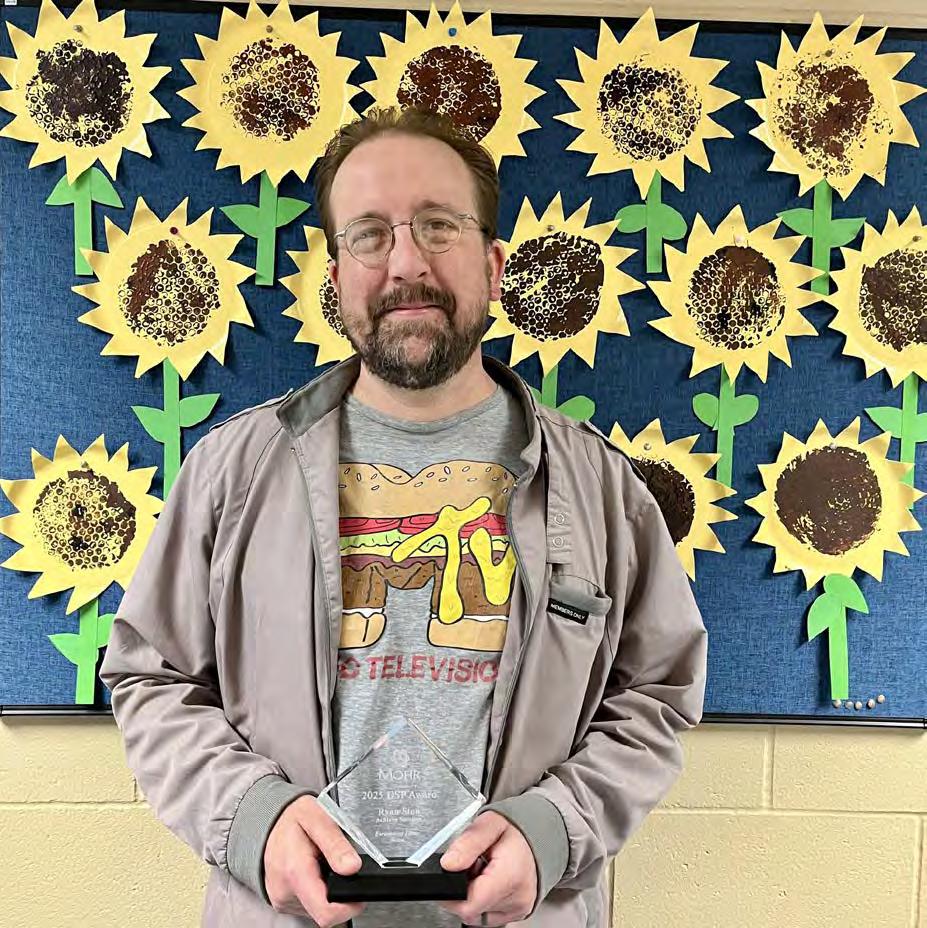
Success of the people he serves is Orege’s inspiration. “If I had even a small part of that it feels great."
Vocational specialist Jennifer Janowski, Partnership Resources Inc. (PRI), Minneapolis, DSP Award for Employment – Metro. An advocate and mentor, Janowski is dedicated to her team of 18 years. “Jenny is very passionate about what she does. She is always willing to step in and go above and beyond,” said Chelsey Fugleberg, director of employment services at PRI. Janowksi works with her team at Cub Foods, tending to their daily tasks and advising additional independent placement individuals throughout the metro area. Even more than that, Janowski is part of her team’s personal support system. She helps them with an array of personal challenges beyond the workplace.
One of her clients who worked at Cub recently celebrated 25 years’ service, so Janowksi organized a celebration for him.
“The more I work with people, they become family,” she said. “ They inspire me every day.”
Community life engagement coordinator Molly Talle, Wabasha County DAC, Wabasha, DSP Award for Enrichment - Greater Minnesota. Talle has made a tremendous impact in her four years of service. Within the last year, Talle helped develop a new program. Service recipients are in the community in non-work settings and develop natural supports with community members.
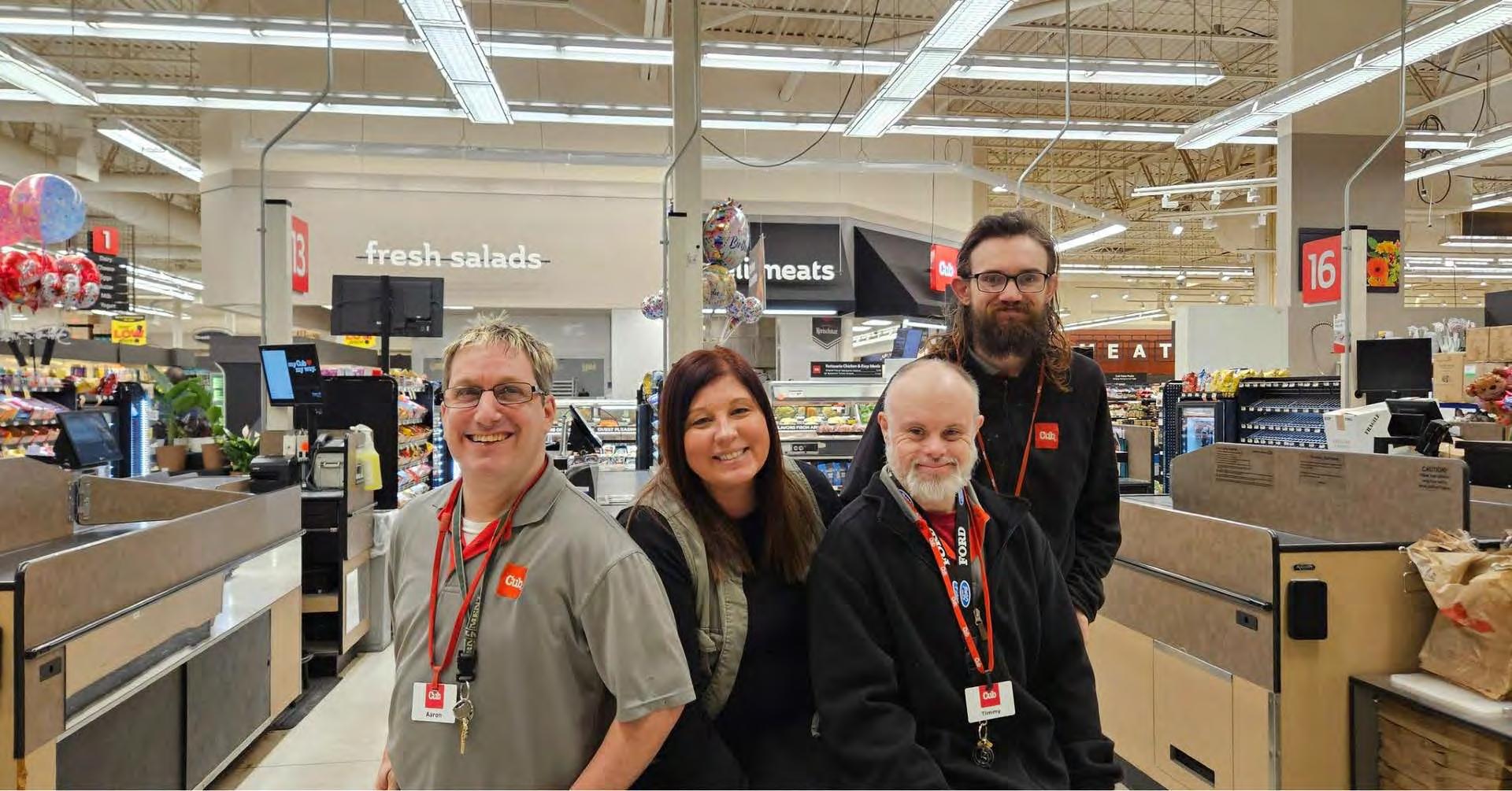
and helping them get into areas of the community that they wanted.”
Within six months the new program has already surpassed its first year goal. Talle wants service recipients to “not just being in the community, be part of the community… helping [the Wabasha community] experience the disability community is really important.”
DSP-3 Susanne “Lotta” Facente, ProAct, Inc. Eagan, DSP Award for Enrichment –Metro. Facente has been with ProAct Inc. for 20 years. “Lotta’s impact has been great,” said Ali Brown, ProAct Inc day support services manager. “When participants come in they are looking for Lotta. She really wants to make the day the best.”
Facente leads a variety of classes each day for participants including a book club for non-verbal participants, community coffee club, world travel class, and the popular Paint with Lotta. Days end with karaoke and the cha cha slide. She serves on a committee for new programing ideas to expand and improve classes.
“When I first started, we didn’t have classes like we have now. It is fun for the participants and staff,” said Facente, “If I had a really good day today, I want to have a better day tomorrow.”
coordinator Ryan Stoa, Achieve Services, Blaine, DSP Award for Enrichment
Stoa has been with Achieve for more than a decade, and made a big impact since stepping into his current role. Stoa and his work are a vital part of the Achieve experience. His vibrant lineup of weekly art, food, exercise and music groups are eagerly anticipated. He has organized other groups as well.
His creativity shines through activities
Minnesota mascot mock election, and visits from local police and firefighters. He secured grants for outdoor games, fitness equipment, ADA-accessible picnic tables and raised garden beds. He also collaborated with our Behavior Specialist to launch a Social Skills Group and helped organize the Achiever’s Club, empowering participants to lead and shape new activities at Achieve.



All awardees demonstrate a commitment to DSP week and the announcement of ARRM
ARRM honorees and leaders celebrated at a recent event.
Jennifer Janowski, center, with clients
Ryan Stoa

RADIO TALKING BOOK
Feedback is still needed
Anyone who has not yet weighed in about Minnesota Radio Talking Book and user experiences is urged to do so. The staff depend on listener input to make services better. Go to https://tinyurl.com/ surveyRTB or call Lisa Rogers, marketing and outreach coordinator, at 651-539-2381. Enjoy Radio Talking Book
Radio Talking Book is not just for listeners with visual disabilities. Anyone with difficulty reading or turning pages can enjoy the service.
Radio Talking Book schedules can be emailed. Sign up at tinyurl.com/RTBemail. If email is preferred over other formats, contact Ronnie Washington at 651-5391424 or SSB.Equipment@state.mn.us to indicate what version is desired.
The sampling published monthly in Access Press doesn’t represent the full array of programming. Listen to RTB’s live or archived programs online at www. mnssb.org/rtb, and learn more about programs.
Hear programming on a hand-held mobile device, for either iOS or Android. Visit the Apple App Store for iOS, or Google Play for Android, and download the Minnesota Radio Talking Book app. Missed a book broadcast? Access it for one week following its original broadcast in the online weekly program archive. For help accessing the archive, contact Ronnie Washington at 651-539-1424 or SSB.Equipment@state.mn.us.
If the book’s broadcast is no longer available in the archive, contact staff librarian Molly McGilp at 651-539-1422 or Molly.McGilp@state.mn.us
Books broadcast on the Minnesota Radio Talking Book Network are available for loan through the Minnesota Braille and Talking Book Library in Faribault. The catalog is at www.mnbtbl.org. Call 800722-0550, Mon-Fri, 9 a.m. - 4 p.m. CST. Updates are also on the Facebook site Minnesota Radio Talking Book.
Audio information about the daily book listings is on the National Federation for the Blind (NFB) Newsline. Register for NFB Newsline by calling 651-539-1424.
The NFB-NEWSLINE service provides access to more than 500 magazines and newspapers. To learn more, visit www.nfb. org/programs-services/nfb-newsline; 612562-7803
Staff welcomes feedback or suggestions. Contact Joseph Papke at 651-539-2316 or joseph.papke@state.mn.us. Contact Tom Conry at 651-642-0880 or thomas. conry@state.mn.us with comments about periodicals and newspapers programming.
Chautauqua*
Monday – Friday 6 a.m.
The Forgotten Sense, nonfiction by Jonas Olofsson, 2025. A fascinating exploration of a most essential yet least understood sense, smell—enabling people to appreciate food and drink, warning of dangers, and even influencing who people fall in love with. Read by Yelva Lynfield. 11 broadcasts; begins Wed, Oct 1.
Is Anyone Listening, nonfiction by Denise L. Herzing, 2024. A deep dive into the many ways animal species communicate with their kin, their neighboring species and humans. Read by Lannois Neely. 11 broadcasts; begins Thu, Oct. 16.
Past is Prologue*
Monday – Friday 11 a.m.
How the World Made the West, nonfiction by Josephine Quinn, 2024. An awardwinning Oxford history professor makes a forceful argument that the West is, and always has been, truly global. Read by Dan Sadoff. 19 broadcasts; begins Mon, Oct. 6 Bookworm*
Monday – Friday 12 p.m.
Daodejing, nonfiction by Laozi, 2023. A transformative new edition of Taoism’s central text that overturns its reputation for calming, gnomic wisdom, revealing instead a work of “philosophical dynamite.” Read by Philip Lowry. Three broadcasts; begins Wed, Oct 8.
The Mesmerist, fiction by Caroline Woods, 2024. A charitable residence for women in 19th-century Minnesota is at the center of a murderous mystery where three very different women must work together to stop a killer. Read by Carol McPherson. 11 broadcasts; begins Mon, Oct. 13.

Another Man in the Street, fiction by Caryl Phillips, 2025. A hypnotic, heartbreaking novel about the immigrant experience and the high price of attempting to reinvent oneself. Read by Tom Speich. Seven broadcasts; begins Tue, Oct. 28.
The Writer’s Voice*
Monday – Friday 1 p.m.
Making It So, nonfiction by Patrick Stewart, 2023. The renowned and bestselling memoir from iconic, beloved actor and living legend, Sir Patrick Stewart. Read by Jim Ahrens. 16 broadcasts; begins Mon, Oct. 6.
Ingenious, nonfiction by Richard Munson, 2023. The dramatic story of an ingenious man who explained nature and created a country: Benjamin Franklin. Read by Stevie Ray. Nine broadcasts; begins Tue, Oct. 28.
Choice Reading*
Monday – Friday 2 p.m.
A Great Marriage, fiction by Frances Mayes, 2024. When a perfect wedding is called off just days before the big event, it raises two questions: What makes a great marriage, and what do wedding vows really mean?
Read by Cintra Godfrey. 12 broadcasts; begins Mon, Oct. 13. – L
See Friendship, fiction by Jeremy Gordon, 2025. A poignant and funny novel about grief, loneliness, memory, and the unique existential questions inherent to the digital age. Read by Stuart Holland. 11 broadcasts; begins Wed, Oct. 29. – L
Afternoon Report*
Monday – Friday 4 p.m.
Erasing History, nonfiction by Jason Stanley, 2024. A global call to action that reveals the far right’s efforts to rewrite history and undo a century of progress on race, gender, sexuality, and class. Read by John Potts. Six broadcasts; begins Wed, Oct. 8.
Limitarianism, nonfiction by Ingrid Robeyns, 2024. An original and galvanizing indictment of the world’s uber-rich that boldly argues for a cap on wealth from the philosopher who coined the term "limitarianism.” Read by John McClure. 12 broadcasts; begins Thu, Oct. 16.
All times listed are Central Standard Time.
Abbreviations
V – violent content
R – racial epithets
L – strong language
S – sexual situation
G – gory descriptions
Night Journey*
Monday –Friday 7 p.m.
What Happened to Nina?, fiction by Dervla McTiernan, 2024. A young Vermont woman goes missing and her boyfriend is the prime suspect. Read by Holland Richner. 12 broadcasts; begins Tue, Oct. 7. – L, V The President's Lawyer, fiction by Lawrence Robbins, 2024. A Washington, DC litigator is hired to defend his best friend, the former president of the United States, against a murder charge in this sensational thriller. Read by Pat Ocken. 10 broadcasts; begins Thu, Oct. 23. – L, S Off the Shelf
Monday – Friday 8 p.m.
The Throne, fiction by Franco Bernini, 2024. A historical novel recounting the enigmatic life of Niccolò Machiavelli, revealing the complex man behind the infamous political strategist. Read by Gary Rodgers. 15 broadcasts; begins Mon, Oct. 6. – S, V, G Small Rain, fiction by Garth Greenwell, 2024. A medical crisis brings one man close to death―and to love, art, and beauty―inspiring a meditation on a vital life in this profound and luminous novel. Read by Don Lee. 12 broadcasts; begins Mon, Oct. 27. – L, S
Potpourri
Monday – Friday 9 p.m.

London, nonfiction by Paul Knox, 2024. A lively new history of London told through twenty-five buildings, from iconic Georgian townhouses to the Shard. Read by Pat KovelJarboe. 13 broadcasts; begins Wed, Oct. 1. Gobsmacked!, nonfiction by Ben Yagoda, 2024. A spot-on guide to how and why Americans have become so bloody keen on Britishisms— for good or ill. Read by Jan Anderson. 10 broadcasts; begins Mon, Oct. 20.
RADIO TALKING BOOK To page 11

PEOPLE AND PLACES
Woodbury author’s disability story is one of recovery, rediscovery
Once a high-velocity university safety executive, perpetual problem-solver and cancer survivor, Woodbury resident Kenneth Kerns' life was forever changed in April 2020 after his wife, Karri Kerns, found him unconscious on the bathroom floor of their home. Rushed into emergency surgery due to a hemorrhagic stroke, Kerns was then placed into a 10-day medically induced coma to allow him to heal.
When Kerns woke from his coma he was paralyzed on his right side and struggling with aphasia. He quickly became aware that the life he previously knew was gone. In his new book, Anything but Frank: A Journey of Healing, Patience, and Rediscovery, shares the highs and lows of the recovery process, how he rebuilt his life and reached a deeper appreciation for life's small victories.
The title, Anything but Frank, Kerns' experience after waking from his coma.

Goodwill-Easter
Seals on the move
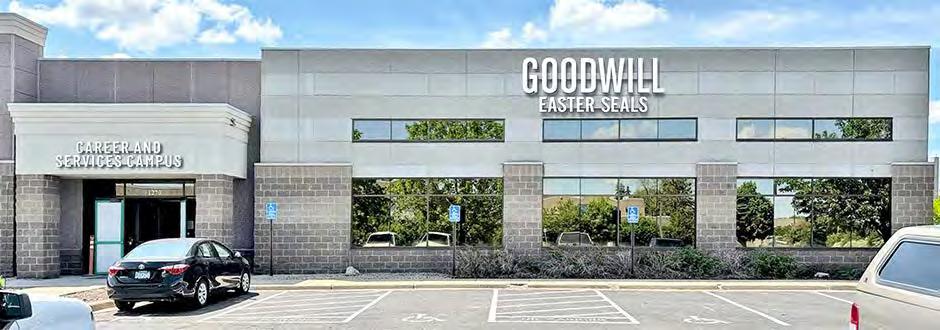
“When I first woke up, one nurse kept calling me Frank,” Kerns said. “I couldn't speak to correct them, but inside I was shouting, ‘I'm not Frank, I'm Ken!’ In those first confusing days, hearing the wrong name made me wonder if I even knew who I was anymore.”
In Kerns' post-stroke disorientation, and with no family at his bedside due to COVID restrictions, he was in significant distress. Fortunately, a FaceTime call with his wife soon helped him recenter.
Seven highly cinematic dream chapters give readers a window inside Kerns' mind, mixing hospital fragments with surreal storylines that mirror fear, isolation, and hope. Together, the dreams process the helplessness Kerns feels due to things such as restraints, tubes and noise, as well as identity and the fragile grace of brief connections.
Kerns' recovery was built on small, incremental victories: a thumb twitch marking the first sign of life returning to his paralyzed side, followed by therapy that turned tiny movements into the ability to grasp, stand, and eventually walk again. Milestones such as walking 120 feet with a walker or being discharged on his Independence Day carried deep symbolic

Some

weight, proving that healing was possible through persistence, support and faith. Living with aphasia also challenged him daily, but through therapy and his work with Minnesota Connect Aphasia Now (MnCAN), he regained his voice and grew into a leadership role as president of the organization's board. Kerns describes his transformation into someone more intentional, grateful and compassionate. His story is that that recovery is not just physical, it is also emotional, relational, and spiritual, shaping a life centered on presence, love and faith. Kerns serves as president of the board for MNCAN, volunteers at Open Cupboard food shelf, and drives cancer patients to appointments through the American Cancer Society. Married for 40 years, he and his wife have two daughters and three granddaughters. A man of deep faith, Kerns credits God daily for his survival and his calling to help others.
His book is available at Archway
TAKE NOTE!
notes about Take Note!
Access Press is publishing fewer calendar items in print and encouraging more to be posted online. The change allows more immediate information about upcoming events.
Thanks to organizations that have used our web page rather than sending items for the print calendar. Many more of you are urged to join!
Online options include paid online advertising or our free events calendar. Ways to post an event on the online calendar can be found at www.accesspress. org, under the listings tab. The event must be disabled-focused, offer accommodations or led by a disability service organization. Ads can be purchased via ads@ accesspress.org
Please list your accommodations and complete information, such as time, date
and place, with an ad or a free calendar listing. That information is especially needed for users of paratransit who must often schedule rides in advance. Anyone with questions can contact Editor Jane McClure at jane@accesspress.org or 651644-2133 ext. 1
A third option is our Access Press Directory, which appears quarterly in print and 24/7 online. The directory provides an accessible, visible and economical means of getting the word out about organizations that offer events and activities on an ongoing basis.
If your organization or group isn’t in our Access Press Directory, a listing is an economical way to get the word out. This can include disability-focused arts, cultural and service groups. Email us at ads@ accesspress.org

Are you a Yahoo user?
Access Press readers who use Yahoo email might be missing out. Our staff is getting a lot of email bounce backs from Yahoo email addresses.
Don’t miss news and information that Minnesotans with disabilities, their allies, organizations, and groups need to know. Computers and other devices should have spam or junk blockers turned on. Make sure the Access Press emails are in the proper mailbox.
Thank you!
The new facility is being prepared for clients.
Goodwill-Easter Seals Minnesota is moving its St. Paul Campus and Prior Training Facility to a new location in the city’s Energy Park neighborhood. Programs and services will continue with minimal interruptions. Services will begin at the new location October 16 at the new Career & Services Campus at 1270 Energy Lane, St. Paul. The location will be the new home for GoodwillEaster Seals’ career training and education programs, Ramsey County Minnesota family Investment Program (MFIP) and
RADIO TALKING BOOK
From page 10
Good Night Owl
Monday – Friday 10 p.m.
An Instruction in Shadow, fiction by Benedict Jacka, 2024. The ultra-rich control magic—the same way they control everything else—but Stephen Oakwood may just beat them at their own game in this exhilarating contemporary fantasy.
Read by Carol McPherson. 11 broadcasts; begins Mon, Oct. 20. – L
RTB After Hours*
Monday – Friday 11 p.m.
I’m a Fan (rebroadcast), fiction by Sheena Patel, 2022. A debut novel about a young British woman, power, intimacy, and the internet. Read by Cintra Godfrey. Seven broadcasts; begins Thu, Oct 2. – L, S, V Phantasma, fiction by Kaylie Smith, 2024.
CLASSIFIEDS
https://theweco.com/who-we-are/the-weco-
Families
Achieving Success Today (FAST), the St. Paul location for FATHER Project, Metro Disability Services and the office for many of Goodwill-Easter Seals’ administrative functions.
The email and phone numbers will remain the same.
A grand opening is planned for 8-10 a.m. Tuesday, November 4. The event is open to the public.
A seductive fantasy adventure where there are only two rules to the game: Stay alive. And don’t fall in love. Read by Julia Brown. 15 broadcasts; begins Mon, Oct. 13. – L, S, V, G, L
Weekend Program Books Your Personal World, 1 p.m. Sat, presents Fight Right by Julie and John Gottman, read by Dan Sadoff.
For the Younger Set, 11 a.m. Sun, presents Fetching Dreams by Mary Bleckwehl, read by Brenda Powell. Poetic Reflections, noon Sun, presents Incandescent by Emilie Buchwold, read by Joseph Papke; followed by [Elipses] by Fady Joudah, read by Peter Danbury. The Great North, 4 p.m. Sun, presents Too Much Sea For Their Decks by Michael Schumacher, read by Nancy Johnson.


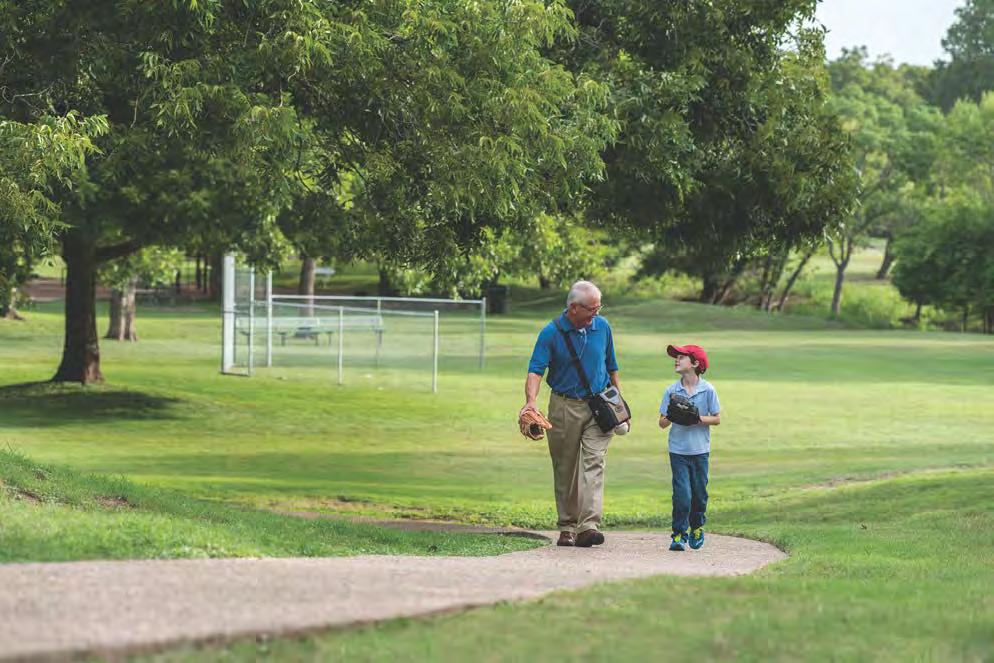



Affordable Senior Apartments
For
Immediate
For
Affordable Senior Apartments
Housing with Care*

Immediate


